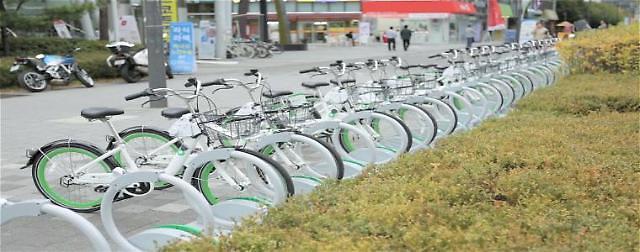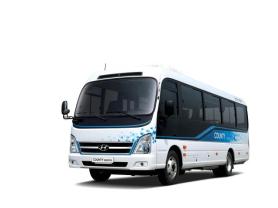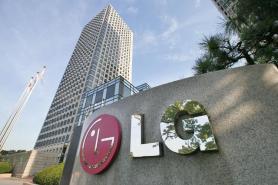
[Courtesy of Seoul Metropolitan Government]
In an effort to help ease traffic congestion, Seoul started the service of "Ttareungi," a citywide bicycle rental that charges 1,000 won ($0.84) per hour via a dedicated smartphone app, in 2015. Currently, there are more than 2,000 Ttareungi stations and 30,000 bicycles across Seoul.
According to data released by Yonsei University's Barun ICT Research on August 10, the average daily usage rate of Ttareungi from March 22 to April 1 was 1.7 times higher than the rate measured from March 1 to 21.
South Korea has launched a social distancing campaign to prevent the spread of COVID-19 in densely populated urban areas. Many companies had their workers telecommute and face masks are compulsory when using public transports or entering buildings.
"I've stopped using buses when COVID-19 spread. I use Ttareungi to get to work and travel everywhere," Kim Ji-hoon, a 38-year-old businessman, told Aju News. Kim thinks Seoul has a perfect network of dedicated bike lanes for Ttareungi users.
Personal mobility-sharing services have gained popularity among young people in Seoul and satellite cities. Kakao Mobility, the mobility service wing of South Korea's web service company Kakao, launched an electric bicycle rental service in Seoul's satellite cities in 2019. There are dozens of electric scooter-sharing services in Seoul.
-0-
Copyright ⓒ Aju Press All rights reserved.




